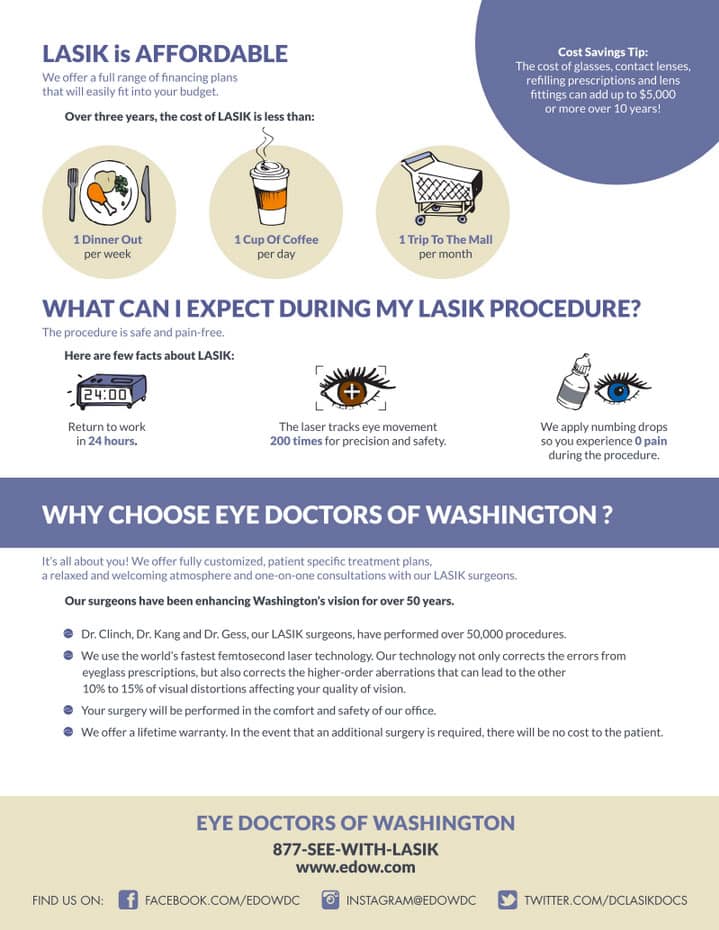SMILE Eye Surgical Treatment Gives A Minimally Invasive Method For Vision Adjustment, But What Are The Possible Threats And Recuperation Information You Should Know?

Short Article Author-Buch McQueen
If you're taking into consideration vision improvement choices, SMILE eye surgery might be on your radar. This cutting-edge treatment includes producing a tiny lenticule in the cornea to address nearsightedness and astigmatism. Unlike traditional LASIK, it's much less invasive and promises quicker healing. However, while there are substantial advantages, there are also risks entailed. Comprehending both facets can help you make an enlightened choice regarding your eye health and wellness. What's the recovery procedure like, and what should you anticipate?
Comprehending the SMILE Treatment
The SMILE procedure, or Tiny Cut Lenticule Removal, is a minimally intrusive eye surgical procedure created to correct vision concerns like nearsightedness and astigmatism.
During this procedure, a laser develops a small lenticule, or lens-shaped cells, within the cornea. You will not need any type of stitches, as the small laceration allows for a quick healing.
The cosmetic surgeon then eliminates the lenticule via this tiny cut, reshaping your cornea to boost your vision. Unlike conventional LASIK, SMILE doesn't need the production of a huge flap, which can bring about fewer complications.
You'll discover that this strategy is much less disruptive to the corneal framework, possibly boosting stability. Comprehending the procedure aids you really feel extra confident as you consider your choices for vision modification.
Conveniences of SMILE Eye Surgery
While taking into consideration vision improvement options, you may find that SMILE eye surgery uses a number of engaging benefits.
First, it's minimally invasive, requiring just a tiny incision, which means less interruption to your eye framework. raleigh smile vision consultation leads to quicker recuperation times and less pain contrasted to typical LASIK.
You'll likewise value its accuracy; SMILE utilizes innovative laser technology to reshape the cornea, giving outstanding outcomes for nearsightedness and astigmatism.
Additionally, numerous individuals report improved aesthetic high quality, with fewer circumstances of glow or halos. Given that there's no requirement for a corneal flap, your eyes stay more stable post-surgery.
Lastly, the procedure generally takes simply a couple of minutes, allowing you to return to your everyday tasks quicker than with other techniques.
Potential Risks and Recovery Process
Although SMILE eye surgery is normally risk-free, it's important to be familiar with prospective threats that can emerge during or after the treatment. Some individuals might experience short-lived side effects like completely dry eyes, glow, or halos around lights.
In rare cases, complications such as infection, vision loss, or the requirement for extra surgical treatment can happen.
Recuperation typically involves a few days off and preventing laborious tasks. https://dfw.cbslocal.com/2019/05/22/former-fda-advisor-lasik-eye-surgery/ should follow your specialist's post-operative guidelines meticulously, consisting of utilizing prescribed eye drops and attending follow-up visits.
Lots of individuals notice boosted vision within a couple of days, but full healing can take weeks. Remaining patient and giving your eyes time to heal is vital for the best end result.
Final thought
In conclusion, SMILE eye surgery supplies a contemporary, minimally invasive option for remedying nearsightedness and astigmatism. With its quicker healing time and lowered pain, it's an appealing option for lots of. However, it's vital to weigh the prospective risks against the benefits. By remaining informed and adhering to post-operative care, you can optimize your possibilities of a successful result. If you're considering this treatment, talk to your eye care professional to figure out if it's right for you.

